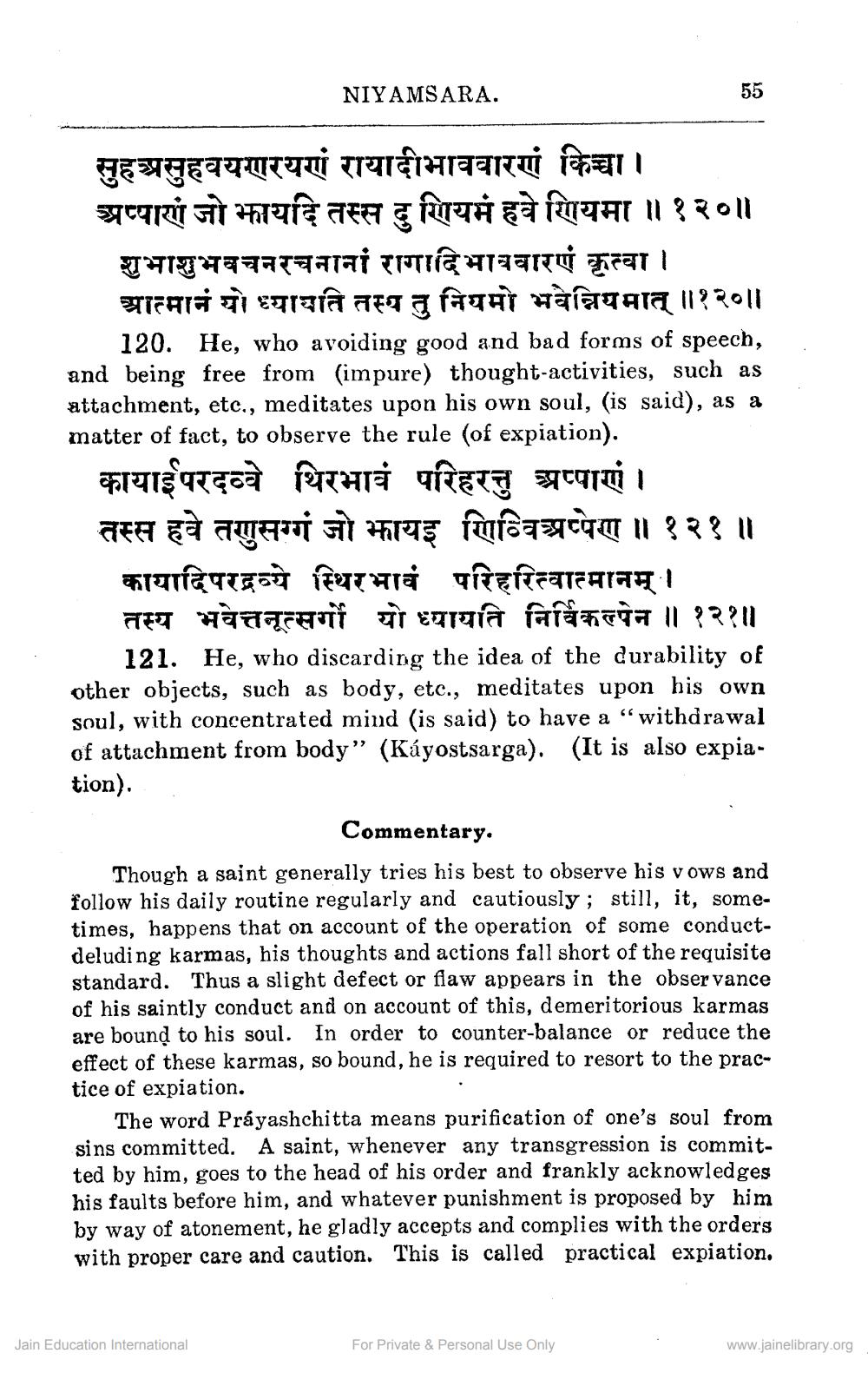________________
NIYAMSARA.
सुहअसुहवयणरयणं रायादीभाववारणं किच्चा। अप्पाणं जो झायदि तस्स दुणियमं हवेणियमा ॥१२०॥ शुभाशुभवचनरचनानां रागादिभाववारणं कृत्वा । प्रात्मानं यो ध्यायति तस्य तु नियमो भवेनियमात् ॥१२०॥
120. He, who avoiding good and bad forms of speech, and being free from (impure) thought-activities, such as attachment, etc., meditates upon his own soul, (is said), as a matter of fact, to observe the rule (of expiation).
कायाईपरदव्वे थिरभावं परिहरन्तु अप्पाणं । तस्स हवे तणुसग्गं जो झायइ णिव्विअप्पेण ॥ १२१॥ कायादिपरद्रव्ये स्थिरभावं परिहरित्वात्मानम् । तस्य भवेत्तनूत्सर्गो यो ध्यायति निर्विकल्पेन ॥ १२१॥
121. He, who discarding the idea of the durability of other objects, such as body, etc., meditates upon his own soul, with concentrated mind (is said) to have a “withdrawal of attachment from body” (Káyostsarga). (It is also expia
tion).
Commentary.
Though a saint generally tries his best to observe his vows and follow his daily routine regularly and cautiously ; still, it, sometimes, happens that on account of the operation of some conductdeluding karmas, his thoughts and actions fall short of the requisite standard. Thus a slight defect or flaw appears in the observance of his saintly conduct and on account of this, demeritorious karmas are bound to his soul. In order to counter-balance or reduce the effect of these karmas, so bound, he is required to resort to the practice of expiation.
The word Práyashchitta means purification of one's soul from sins committed. A saint, whenever any transgression is committed by him, goes to the head of his order and frankly acknowledges his faults before him, and whatever punishment is proposed by him by way of atonement, he gladly accepts and complies with the orders with proper care and caution. This is called practical expiation,
Jain Education International
For Private & Personal Use Only
www.jainelibrary.org




